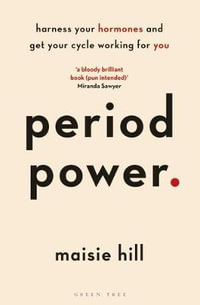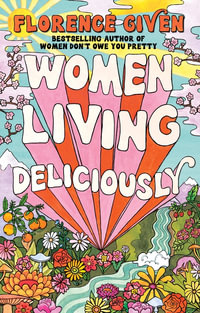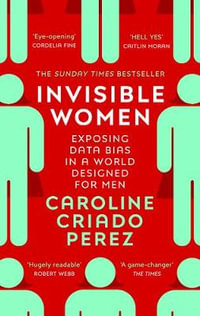
Choice and Coercion
Birth Control, Sterilization, and Abortion in Public Health and Welfare
By: Johanna Schoen
Paperback | 7 March 2005
At a Glance
Paperback
$119.25
Aims to ship in 10 to 15 business days
When will this arrive by?
Enter delivery postcode to estimate
In this book, Schoen situates the state's reproductive politics in a national and global context. Widening her focus to include birth control, sterilization, and abortion policies across the nation, she demonstrates how each method for limiting unwanted pregnancies had the potential both to expand and to limit women's reproductive choices. Such programs overwhelmingly targeted poor and nonwhite populations, yet they also extended a measure of reproductive control to poor women that was previously out of reach.
On an international level, the United States has influenced reproductive health policies by, for example, tying foreign aid to the recipients' compliance with U.S. notions about family planning. The availability of U.S.-funded family planning aid has proved to be a double-edged sword, offering unprecedented opportunities to poor women while subjecting foreign patients to medical experimentation that would be considered unacceptable at home.
Drawing on the voices of health and science professionals, civic benefactors, and American women themselves, Schoen's study allows deeper understandings of the modern welfare state and the lives of women.
Industry Reviews
Although not indicated in either title or subtitle, this book's focus is North Carolina, 1880-1973. There is, however, nothing narrow or provincial about this impressive study. . . . It is impossible here to adequately convey the sophistication and complexity of the monograph. . . . All students and practitioners interested in women's health, social welfare policy, community medicine, social activism, fertility control, reproductive rights, pharmaceutical trials, coercive abortion, and sterilization programs should read this book. Essential.--Choice
An insightful and engaging account of local, national, and international struggles over the control of women's fertility. . . . Should be read by students and researchers alike interested in the American South, medicine, state formation, and the intersections of gender, race, and class.--NC Historical Review
Deserves to be on the reading list of every women's studies program and to be read by men and women who wish to improve the health of both our female citizens and our democracy.--Winston-Salem Journal
Schoen analyzes how news reports can water down historical complexity and stifle further discussion, and how apologies can mislead the public into thinking that problems have been solved and impoverished women's reproductive rights are secure.--Journal of African American History
Schoen successfully reveals what has been a misunderstood history of the agency and coercion involved in the relationship between women's bodies and the state. This book is a valuable contribution to the history of medicine, public health and welfare, women's rights and the impact of state policy on individual women and their families in the United States and around the world.--Journal of American Studies
Schoen works from a dazzling array of material. . . . [She] sifts through this evidence with remarkable care and tact, providing a picture of the changing nature of women's access to reproductive technologies over several decades. The strength of the work lies in how Schoen refuses to shy away from complex and competing accounts of a fraught set of topics. . . . A bold and innovative move to set the terms on which we might be able to write global histories of reproduction.--Journal of the History of Medicine and Allied Sciences
Skillfully demonstrates the global impact of these earlier twentieth century debates and imperial relationships. . . . Schoen skillfully positions her work within the wider study of women's reproduction history.--Material Culture
The material on North Carolina [is] compelling and highly accessible.--Journal of the History of Medicine
This is an important study, one that rightfully places North Carolina's story squarely on the historical map.--American Historical Review
ISBN: 9780807855850
ISBN-10: 0807855855
Series: Gender and American Culture
Published: 7th March 2005
Format: Paperback
Language: English
Number of Pages: 352
Audience: Professional and Scholarly
Publisher: The University of North Carolina Press
Country of Publication: US
Edition Type: New edition
Dimensions (cm): 23.5 x 15.6 x 2.03
Weight (kg): 0.52
Shipping
| Standard Shipping | Express Shipping | |
|---|---|---|
| Metro postcodes: | $9.99 | $14.95 |
| Regional postcodes: | $9.99 | $14.95 |
| Rural postcodes: | $9.99 | $14.95 |
How to return your order
At Booktopia, we offer hassle-free returns in accordance with our returns policy. If you wish to return an item, please get in touch with Booktopia Customer Care.
Additional postage charges may be applicable.
Defective items
If there is a problem with any of the items received for your order then the Booktopia Customer Care team is ready to assist you.
For more info please visit our Help Centre.
You Can Find This Book In
This product is categorised by
- Non-FictionPolitics & GovernmentCentral GovernmentCentral Government Policies
- Non-FictionMedicineMedicine in GeneralPublic Health & Preventive MedicinePersonal & Public Health / Health EducationBirth Control
- Non-FictionSociety & CultureEthical Issues & DebatesEthical Issues of Abortion & Birth Control
- Non-FictionMedicineMedicine in GeneralMedical ProfessionMedical Ethics & Professional Conduct
- Non-FictionSociety & CultureEthical Issues & DebatesEthical Issues of Scientific & Technological Developments
- Non-FictionReference, Information & Interdisciplinary SubjectsInterdisciplinary StudiesGeneral Studies
- Non-FictionSociology & AnthropologySociologyPopulation & Demography
- Non-FictionSociety & CultureSocial GroupsGender StudiesGender Studies: Women and Girls
- Non-FictionSociety & CultureSocial Issues & ProcessesFeminism & Feminist Theory
- Non-FictionSocial Services & Welfare
























